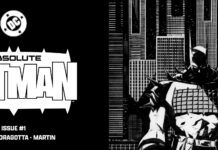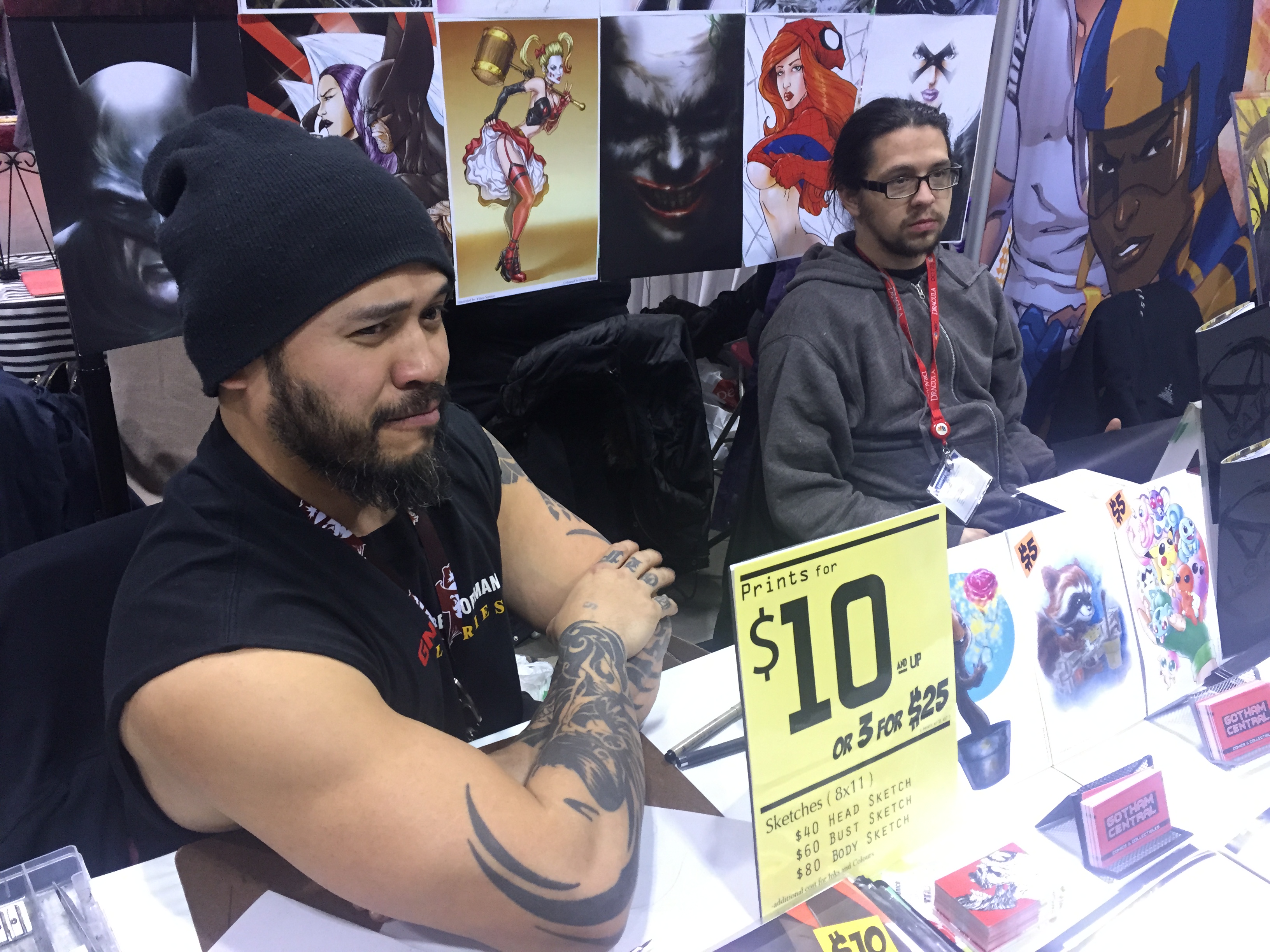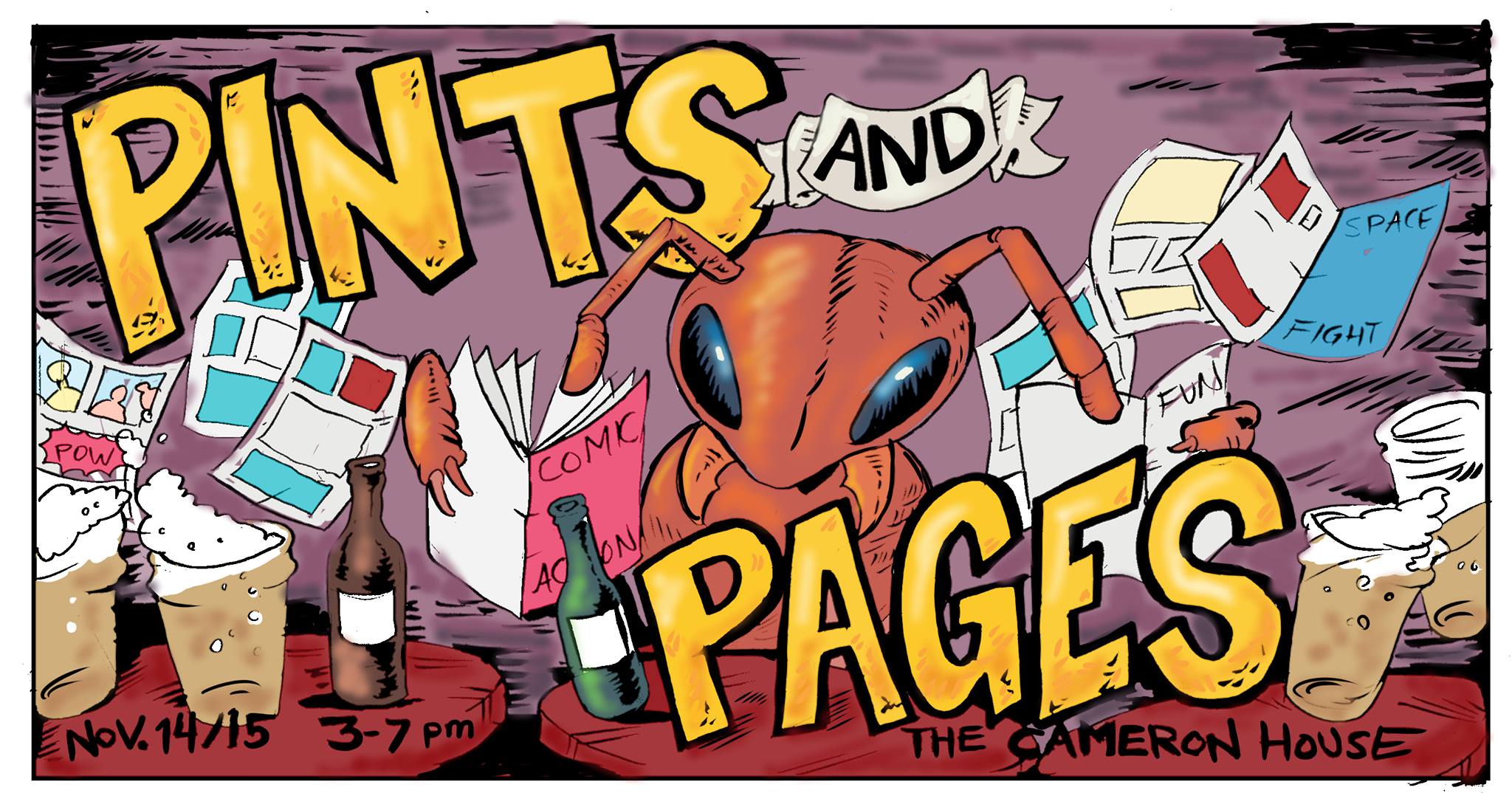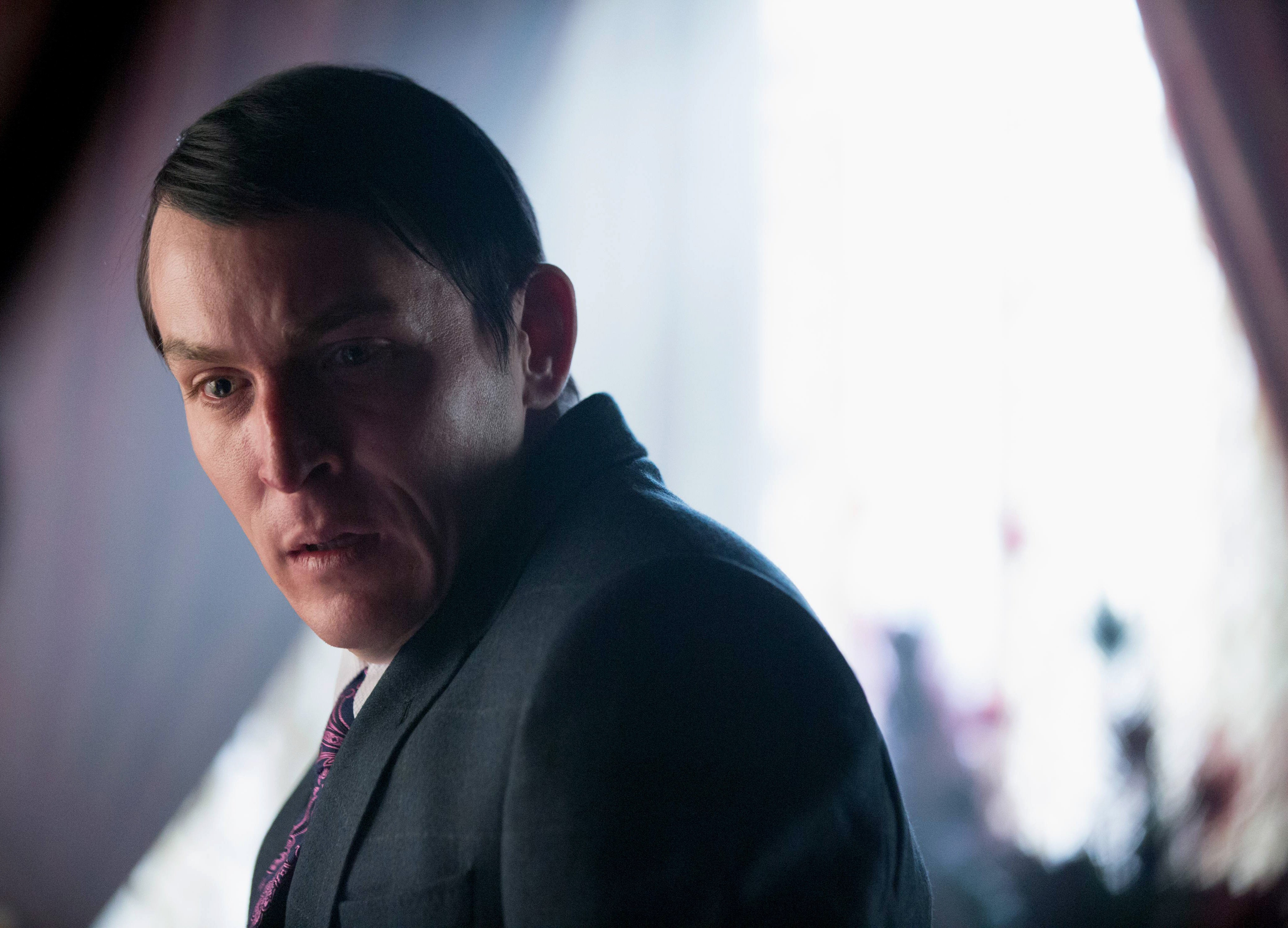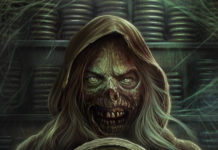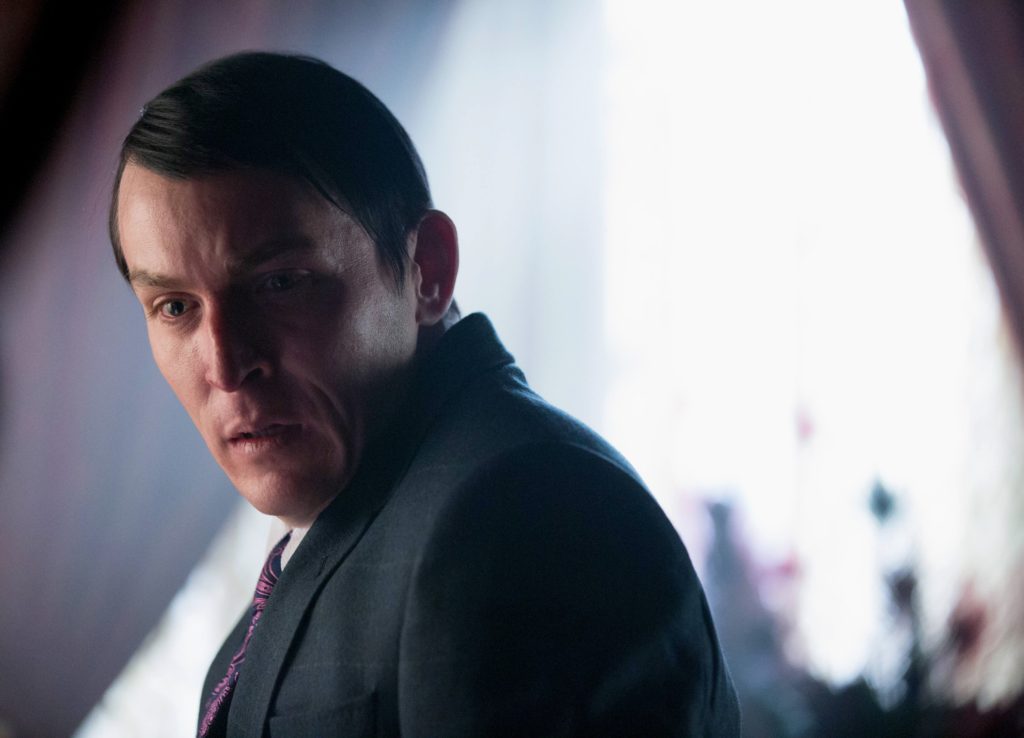 “I just want to do my time.”
“I just want to do my time.”
In a way, it seems that is exactly what Gotham is doing, biding its time until the end of the season. Season two, despite switching to a more serialized format from season one’s episodic structure, is guilty of stuffing five pounds of characters without an engaging arc into a three pound bag. Story impact and dramatic stakes get the short end of the stick at the expense of new villains, crooked cops and Gordon’s morality conflict. Without enough tension, viewers are hard pressed to want to keep watching every week.
That said, “Prisoners” isn’t encumbered by superhero canon. It’s different, but not necessarily an improvement. The episode focuses solely on Gordon and Penguin who are stuck in their respective situations beyond their control, yet ironically are in said situations because of one another. Gordon spends his time in prison getting along and staying out of trouble courtesy of an opening montage. Penguin has found some solace and comfort in long lost father Elijah Van Dahl’s home with a new extended family. Two stories operating in two different ways. There are some interesting aspects to Gordon surviving prison, but Penguin is once again wasted in what appears to be filler.
Gordon’s story is interesting because of the change in location; a shake up in scenery is never a bad thing and presenting another example of Gotham’s broken systems adds layers to the world we have come to love and loath. The problem is the story is a patchwork of clichés and tropes from pretty much every prison film ever made, and those films did it better. The beats are predictable – a beating, a moral stand, a stabbing, and an escape. The only thing missing was Morgan Freeman’s dulcet baritone voice-over narration about how prison life “consists of routine, and then more routine,” or what those two Italian ladies were singing about had there been some opera playing over the speakers. Gordon in prison is different from what Gotham usually does, but is it enough? Is it important that the prison story was glossed over, or was there a missed opportunity to present something truly different? Might it have been interesting for Dent, Barnes and Harvey to deal with the fallout of Gordon’s conviction and his arrests overturned? Would it be intriguing to watch Gordon slide further along his slippery slope of morality to become a force within the prison?
Watching Gordon negotiate the system that’s pitted against him isn’t compelling enough. Of course we want Gordon to escape but he does belong there, even if the crime that sent him there was a setup; he did kill Galavan, after all. That conflict is interesting and could have been developed further, possibly over two or more episodes rather than in one. Also, no one wants a likeable chap such as Puck taking a beating because of Gordon, but Puck serves as Gotham’s not so subtle punch to the face reminder to Gordon not to give up hope and choose life. It would have been better to insert Morgan Freeman’s dulcet baritone voice-over inspiring Gordon to “get busy living, or get busy dying.”
What is interesting and compelling is Harvey turning to Carmine Falcone for help because Harvey, who was in Falcone’s pocket in season one, turned it around with Gordon’s influence and became a good cop again. Harvey dips his toe back into the pool of the moral grey area and so does Gordon, who uses the same corrupt system he fights against to set himself free. How unfortunate that by the end of the storyline, Harvey and Falcone paraphrase the “It ain’t about how hard you can hit, it’s about how hard you can get hit and keep moving forward” speech from Rocky Balboa with enough scenery chewing to give William Shatner a sore jaw. Hopefully Sylvester Stallone and Morgan Freeman are receiving royalty cheques from this episode. It doesn’t help that Puck dies in the front seat of the getaway ambulance; the sliver of hope in prison is a pointless casualty, which further demonstrates how expendable characters are on Gotham. And not even in an “everyone dies” tone in Game of Thrones, either. Gotham tends to treat its characters with casual indifference, as if the pawns on the chessboard don’t matter.
Penguin’s story this week might take the top prize, however, with another cliché involving Grace Van Dahl and her children after Elijah’s money. Robin Lord Taylor and Paul Reubens work well together and their scenes are entertaining, but it lacks depth and weight. Penguin loses one parent to find another only to lose him in two weeks isn’t satisfying, especially when considering Gertrud’s death had a greater affect on him. Grace and her children are one dimensional who don’t move the story forward, unless they are to be set up as fodder for Penguin’s wrath, which is hopefully the first scene in next week’s episode.
A meek and regretful Penguin is not interesting, and this is not a criticism of Robin Lord Taylor’s work. Penguin’s cunning and sadism have ebbed away since he landed in Arkham, and that choice doesn’t seem to serve a purpose in the larger character or story arc. Gordon and Penguin share a dark secret – two, actually, and we get little to nothing of the consequences of their actions. What we do get is Penguin’s mind erased and Gordon doing his best Andy Dufresne before Harvey’s escape plan kicks in. But the show deals with these consequences in such a breezy and deferential manner that it is frustrating. Even more frustrating is the continued lack of cohesiveness in the larger narrative arc of the season. Bat-crazy Babs comes out of her coma but we still haven’t seen her. Nygma gets maybe thirty seconds of screen time, when it might have been more interesting to see further crimes and evolution into The Riddler.
Hopefully Babs goes on a rampage, Nygma gets more screen time and Penguin becomes Penguin again. At least Harvey is still himself and has the best line of the episode when he opines about what criminals do in their spare time – “The real killer is out there somewhere eating donuts and getting laid!”
Tune in next time – same Bat-time, same Bat-channel.



